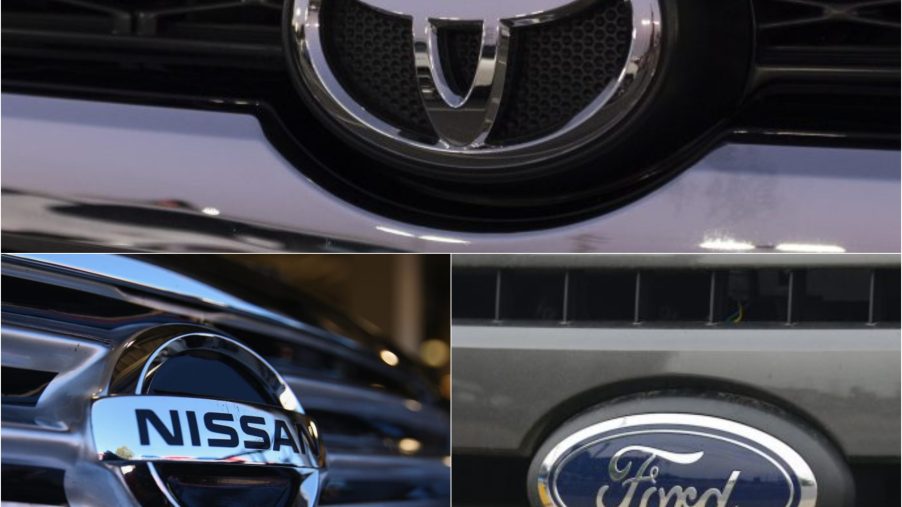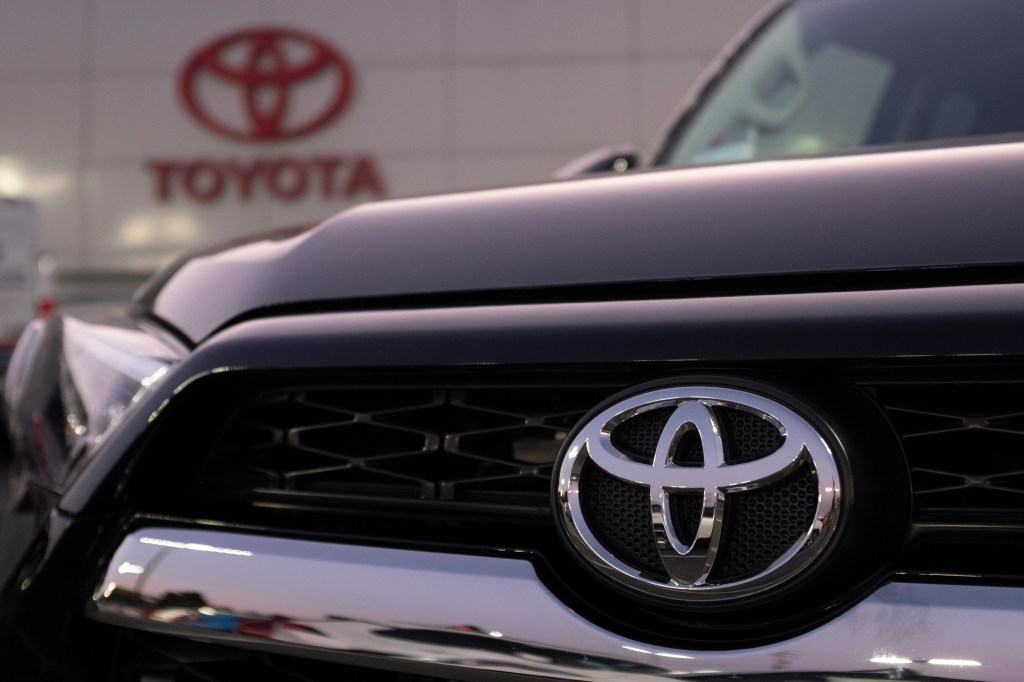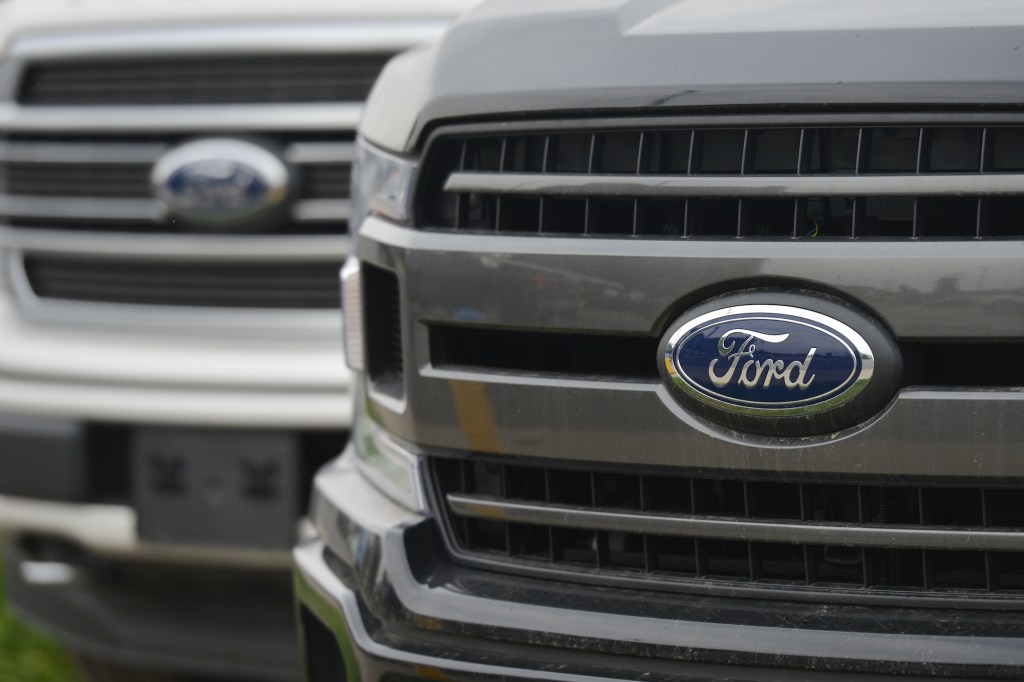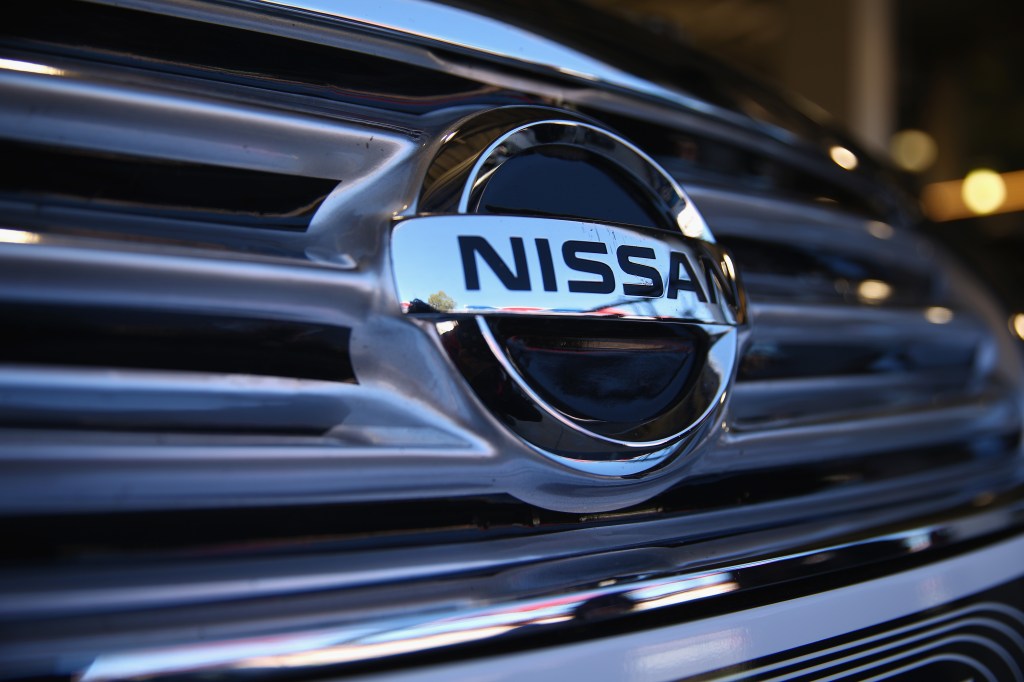
In Terms of the Chip Shortage, Toyota Is Winning, Ford Turned a Profit, and Nissan Is Worried
The chip shortage, paired with Covid-19, has been a test for automakers worldwide. And while no company has made it out unaffected, some are doing better than others. Toyota has a history of rebuilding, which gave them the upper hand from the start. Ford, despite projections, managed to turn a profit. But Nissan, and many others, aren’t so optimistic.

How Toyota kept making cars throughout the chip shortage
The Toyota brand has faced immense challenges throughout its existence. For starters, they had to, quite literally, rebuild from the ground up after WW2, and still managed to produce the first Japanese car sold in America just 10 years later. And in 2011, after a violent earthquake and tsunami hit Japan, they had to rebuild again. Now, after having been around the block, Toyota is applying its rebuilding mentality to this shortage.
The key element in this equation is that Toyota does a great job of maintaining all levels of the supply chain. If you’re not aware of how it works, I’ll briefly sum it up. There are three tiers in a supply chain known as Tier One, Tier Two, and Tier Three.
Let’s say the product you’re making is a t-shirt. Tier Three supplies the raw material, cotton, while Tier Two sews that cotton into fabric. Then Tier One puts that fabric together to create your t-shirt. That’s a very simplified version, and you can learn more at Sustain Life.
But when it came to the chip shortage, most automakers were only in cahoots with the Tier One suppliers, the final product, and not the suppliers that source materials needed to make the chips. Toyota, on the other hand, maintained strong connections on each level, from sourcing the rare materials to building every component of the chip. And those strong relations meant suppliers saw Toyota as a priority, even throughout the shortage.
Ford turns an unexpected, albeit small profit

We’re now in what businesses call “the third quarter,” a fancy way of saying July, August, and September (3/4ths through the year). But Ford’s year has certainly been bumpy, with their net income bouncing up and down. In quarter one, despite the ongoing Covid pandemic and the looming chip shortage, Ford turned a $3.3 billion net income. But for the second quarter, with both Covid and the chip shortage hitting hard, Ford only managed a $561 million net income.
That dip, albeit significant, is actually smaller than what Ford projected back in quarter one (January, February, and March). According to CNN, the company approximated that, over the course of the year, they’d turn a $5.5 or $6.5 billion profit. But now, after recovering from the lack of supplies, Ford is projecting the year’s earnings to be over $10 billion.
This is partly due to the fact that Ford restructured their business. Before now, Ford could just churn out vehicles and send them to dealerships, knowing people would buy them. But because of the limited production, Ford has focused more on “made to order” cars. Not only are they exactly what the buyer wants, but it helps reduce the clutter at dealerships in order to make sure everyone gets the car they want, not just what’s sitting on the lot.
Nissan “cannot be optimistic” about the chip shortage

Not every automaker, however, has a positive outlook on things. Nissan’s CEO Makoto Uchida told CNBC “we cannot be optimistic, and I think this is day-by-day still.” In other words, they’re not out of the woods yet, expecting an impact of 500k units that won’t be made. Though in the second half of the year, Nissan hopes to get that number up to just 250k cars left unmade.
Nissan is hopeful that the first half of the year undid some of the damage, as they’ve been consistently selling 60% more cars per quarter than last year during the Covid pandemic. But nobody there is confident that this shortage will go away soon, bracing themselves for a bumpy road ahead.
The clamoring for chips and Covid pandemic has sent automakers and tech companies in a headspin, with even Apple struggling to get chips for their iPhones. And while there’s no guarantee that the shortage will end in the near future, businesses are testing the effectiveness of their supply chains like never before.


